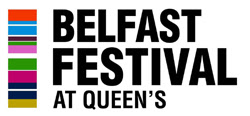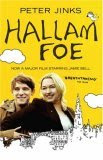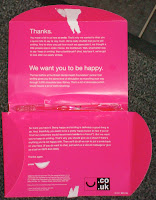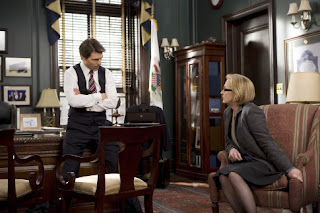
Inspired by a report on last weekend’s Sunday Sequence, and a work colleague talking about it, we finally bought a ticket for something in the Belfast Festival and went along to the Lyric Theatre last night to see the play Truth in Translation.
Back in 1994, Nelson Mandela challenged South Africa with the question:
“Can you forgive the past to survive the future?”
The answer came through the setting up of the Truth and Reconciliation Commission (TRC) to “promote national unity and reconciliation” by pinpointing the “causes, nature and extent” of the violence suffered during South Africa’s Apartheid.
Victims and perpetrators came together to tell their haunting stories. Victims of awful abuses and violations could contribute evidence by telling their stories, often for the first time. By collaborating, perpetrators could request amnesty from prosecution if their oral testimony was believed to be full and truthful.
Interpreters were employed across the country to simultaneously translate the first person stories into South Africa’s eleven official languages. And the TRC hearings were broadcast on television and radio so that everyone could hear the truth.

Truth in Translation follows a team of interpreters, a TV hack and a comforter as they begin their gruesome task. At the beginning of the play, the interpreters—and the audience—are given careful instruction:
“You must not become involved ... you are just a witness.”
Yet caught in the middle of recounting appalling atrocities, dispassionate observation in translation and reporting is impossible. The TRC uncovers a complicated story. The interpreters themselves represent a broad cross section of South African society and experience. They brought their cultural baggage and bias. One was a helicopter sniper who was court marshalled and spent time in prison for refusing to shoot innocent children. Another knows that his father committed crimes as a police officer. The comforter is ever-present, a mother-figure to help witnesses through the experience of testifying.
It’s a dark and menacing play, with rapid-fire dialogue that you can’t hope to catch all of. Most scenes include the interpreters simultaneously translating into their specialist language. There’s also fairly colourful language (and those are only the snippets we caught in English!). Related snippets of video are projected against a screen of empty shirts: a constant on-screen reminder of death and missing friends and family.

Accompanied by a two piece band at the right hand side of the stage, the singing is fantastic. There were a couple of moments when my mind wandered back to the Jerry Springer Opera (a whole different post if you ever want my opinion). The interpreters would break into sweet melodies, yet the lyrics were shocking brutal and vivid, about husbands been blown up and fathers slaughtered. There are moments of levity: there’s a great line about an interpreter working at the dentist ... at the Tooth Commission, and watch out for the impression of Archbishop Desmond Tutu. Yet the dark reality of Apartheid is never far away.
“Will you forgive those responsible for your son’s death?”
“Not today?”
When most workplaces decamp to the pub, the guard comes down and colleagues find a way of joking about normally serious work issues. And the same is true for the interpreters. They mock each other, the witnesses, their country’s history. And they struggle to remain uninvolved. Particularly when embarrassed by F.W. De Klerk’s testimony and the circus around Winnie Mandela’s appearance at the TRC.
The TRC didn’t tell all the stories. But by airing even just a selection of imperfect examples from the bloody history, no one in South Africa could say that they weren’t aware of their country’s past.
And the play raises issues of how well the media can hope to maintain objective and impartial in their reporting when they are faced with stories that run so deep through society’s fabric. It’s an excellent and though-provoking play, no cheap entertainment.

I’ve rambled on enough, but before I go for a Lemsip, sitting in the audience last night, I couldn’t help letting my mind wander across to Northern Ireland, and the Consultative Group on the Past (led by Lord Eames and Denis Bradley).
As a teenager in the early 1980s, I was unaware of Civil Rights marches and internment. The school history syllabus stopped at the end of the Second World War, and Irish History went no further than Cromwell passing through Lisburn! Northern Ireland was too busy living through the nightly attacks and daily bloodshed to spend a lot of time analysing the start of the Troubles for those of us born into it. And drama like the film Titanic Town wasn’t released until 1999.
March 2006 saw Facing the Truth where Desmond Tutu facilitated six televised meetings in Northern Ireland between victims (often widows and families) and perpetrators.
But I’m not convinced that a Truth and Reconciliation Commission in Northern Ireland would open up our history as effectively as the South African model. I’m not certain that truth would be forthcoming. And (perhaps sadly) I’m not convinced that there is a widespread appetite to delve back too far into the Northern Ireland scrapbook.
There’s a scene near the conclusion of Truth in Translation in which a man who probably still couldn’t swim was teaching others to swim. That seemed curiously positive. You don’t need all the answers to move on. Even to move into areas where you’re not comfortable.
Perhaps rather than forgiving to survive, maybe the reality is that Northern Ireland will simply
quietly forget, overlook even, to stagger into the future.















































